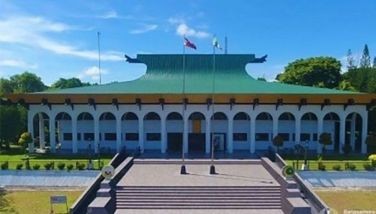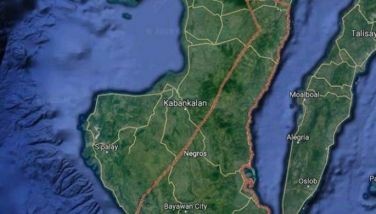Foreign aid agencies rue lack of masterplan in 'Yolanda' areas
MANILA, Philippines - Although the international humanitarian community lauds the government for its response to help the survivors of typhoon "Yolanda", the lack of a masterplan could unnecessarily complicate their long-term work.
At the sidelines of the "The Road to Recovery: Rebuilding with Communities after Typhoon Haiyan", a six-month commemoration event organized by the consortium of European Union partner agencies, executives of humanitarian agencies said the government is doing a good job in taking care of the survivors the disaster in Central Philippines.
Gaps and concerns, however, remain.
"We're concerned and we're hoping that we see a masterplan as soon as possible. In a way it hinders all of us in our work because for our planning, we need the masterplan. But on the other hand the reality is that we know the needs and there's so much to be done," said Carin van der Hor, country director of Plan International Inc. - Philippine Country Office.
"It's not like we can't go ahead without the masterplan, but we really would call on everybody involved to get the masterplan done as soon as possible because it would set the direction and would guide the government on all levels and also us because we are here to support the government and we don't make our own masterplan and it would really help and guide us," Van Der Hor added.
Still, both Van Der Hor and Javad Amoozegar, country director of Action Against Hunger-ACF International, said even their collegues who come here from overseas missions are "very much impressed about what is happening on the ground."
"My colleagues from the international humanitarian missions, those who came from Haiti and the tsunamis and earthquake and Pakistan floods, when they see how the government works, they really like that the government is moving forward," said Amoozegar.
Van Der Horn shared the same sentiment.
"The government is doing a pretty good job and of course that is not true for each and every government official and each and every government agency. But across the board, the government is trying to do its best to coordinate with humanitarian country teams. What we like in particular is that the local govenment - the LGUs - is that they are so involved in terms of decision-making," Van Der Horn said.
Rehabilitation czar Panfilo Lacson has said that two members of the Aquino Cabinet have been derailing efforts to rehabilitate the areas devastated by the typhoon, considered the strongest ever recorded in history.
Meanwhile, Karen Jimeno, communications director of the Office of the Presidential Assistant for Rehabilitation and Recovery (OPARR) said the government has yet to draw up a masterplan as not all government agencies have submitted their own rehabilitation plans.
Van Der Horn said she understands Lacson's frustration, but adds that delays in decision-making are common among governments that have to respond to massive calamities.
"We see the effect of delayed decision-making and I'm not sure where the delays are coming from the communities. I see barangay captains, mayors and vice-mayors who want to move ahead and who can not, either because they're still waiting for decisions from the regional government or decisions from the national government," Van Der Horn said.
Another problem, she said, is the lack of coordination and consultation between the communities and the government.
"How would you like it if you were living in a tent somewhere and somebody decides for you where you will be relocated and when, without even asking you?" she said.
In Tacloban City alone, P3 billion is needed to implement rehabilitation plans.
Alfredo Padernos, a representative of "Yolanda" survivors and the station manager of Humanitarian Radio Station, said many survivors are still complaining that they have yet to receive any relief packs and that they are not included in the provision for relocation and shelters six months after the typhoon struck central Philippines in November.
"People are still in tent city right now, some of them have died because of too much heat and they're flooded when it's raining. In the coastal areas, some people have rebuilt their houses because they're not included in the bunkhouses," he said.
However he said they have discovered a number of unoccupied bunkhouses in Palo, Leyte.
Padernos said "generally, the problems about these bunkhouses are that they have no power at night, [and that] they have not enough ventilation."
He also urged government officials to set aside politics and do more for the rehabilitation of the devastated areas.
The typhoon had left 6,300 people dead and damaged over 54,000 houses.
Officials also said that only 3,340 or 20 percent of 16,473 registered businesses have renewed their licenses in the wake of the typhoon.
- Latest
- Trending

























